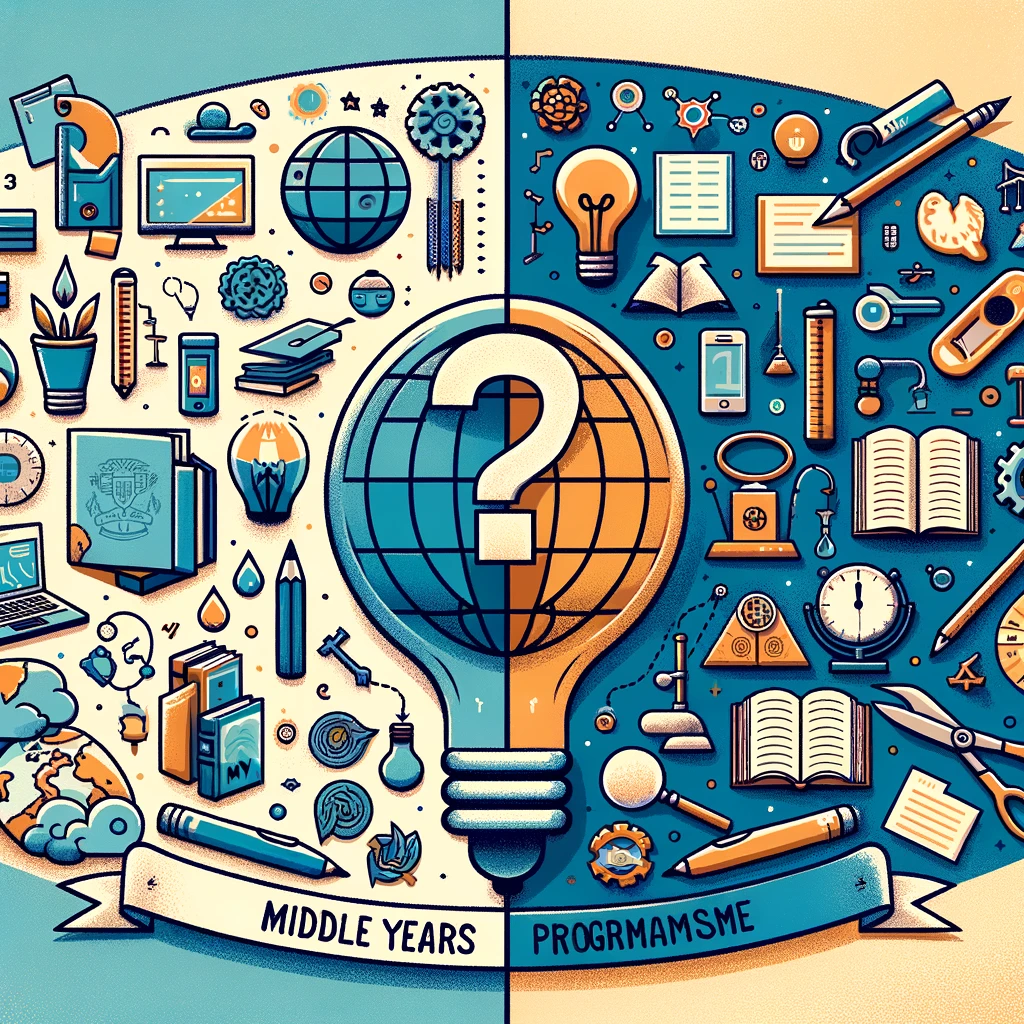Introduction
Choosing the right educational curriculum for your child is pivotal in shaping their academic and professional future. The Middle Years Programme (MYP) and the International General Certificate of Secondary Education (IGCSE) are two prominent frameworks that offer distinct approaches to learning, assessment, and student development. This article, brought to you by Edunostic, aims to demystify the differences between MYP and IGCSE, helping parents and students make an informed choice.
What is MYP?
The Middle Years Programme, developed by the International Baccalaureate (IB), focuses on holistic education for students aged 11 to 16. It encourages critical thinking, intercultural understanding, and a strong sense of personal and academic achievement. The MYP’s unique curriculum framework integrates various subject groups, promoting a comprehensive understanding of key academic areas while fostering personal growth.
What is IGCSE?
The International General Certificate of Secondary Education, offered by Cambridge Assessment International Education, is renowned for its rigorous academic standards and flexibility. Catering to students aged 14 to 16, the IGCSE prepares learners for further academic success and vocational training, emphasizing deep subject knowledge, problem-solving skills, and real-world application.
Curriculum Comparison
While both programs aim to provide a balanced education, their curricula differ significantly in structure, content, and delivery. The MYP’s interdisciplinary approach contrasts with the IGCSE’s subject-specific focus, offering a broader exploration of knowledge versus deep specialization.
Assessment and Evaluation
Assessment in the MYP is criterion-based, focusing on students’ progress across various domains, while the IGCSE utilizes a combination of coursework and examinations to evaluate student performance, offering a more traditional measure of academic achievement.
Global Recognition and Portability
Both programs are internationally recognized, yet their acceptance varies by universities and educational systems. The MYP’s focus on developing lifelong learners aligns with many liberal arts programs, whereas the IGCSE’s academic rigor is often preferred for specialized university courses.
Skill Development and Student Outlook
The MYP emphasizes personal development, critical thinking, and intercultural awareness, preparing students for a rapidly changing world. In contrast, the IGCSE focuses on academic excellence and subject mastery, equipping students with the knowledge and skills needed for specific career paths or further education.
…
Choosing the Right Program for Your Child
Deciding between MYP and IGCSE depends on your child’s learning style, academic interests, and future aspirations. Consider their strengths, areas for growth, and the type of educational environment they thrive in. Consulting with educators and attending information sessions can also provide valuable insights into the best fit for your child.
Conclusion
Understanding the differences between MYP and IGCSE is crucial for making an educated decision about your child’s educational pathway. Each program offers unique benefits and challenges, tailored to different learning styles and future goals. By considering your child’s needs and aspirations, you can choose a path that best supports their development and success.
Parent FAQs Regarding MYP and IGCSE
How do universities view MYP and IGCSE candidates?
Universities globally recognize both MYP and IGCSE qualifications as evidence of a strong educational foundation. However, their perspectives vary based on the specific requirements and focus areas of different higher education institutions. IGCSE is often lauded for its rigorous subject-specific preparation, which aligns well with university course prerequisites, especially in the UK and Commonwealth countries. On the other hand, the MYP is appreciated for developing well-rounded individuals with critical thinking skills and an international mindset, qualities that are highly valued by universities, particularly in the United States and those that favor holistic admission criteria. Ultimately, universities look for candidates who excel in their chosen curricula and demonstrate readiness for the challenges of higher education.
Can students switch from MYP to IGCSE or vice versa?
Yes, students can switch between MYP and IGCSE, but the transition requires careful consideration and planning. The switch is more common before the final two years of secondary education, allowing students to adapt to the new curriculum and assessment methods. Transitioning from MYP to IGCSE may require adjustments due to the different focus on subject-specific depth in IGCSE compared to MYP’s interdisciplinary approach. Schools and educators often provide support through bridging programs or additional tutoring to ease this transition. It’s essential to consult with educational advisors to understand the implications of such a switch for university applications and career aspirations.
What are the key factors to consider when choosing between MYP and IGCSE?
Choosing between MYP and IGCSE should be based on the student’s learning style, academic interests, and future goals. Consider the following factors:
- Learning Approach: MYP’s holistic, inquiry-based learning versus IGCSE’s traditional, subject-specific focus.
- Assessment Style: Preference for continuous assessment (MYP) or final examinations (IGCSE).
- Future Plans: If the student has a clear idea of their preferred subjects or career path, IGCSE might offer more specialized preparation. MYP could be better for students exploring diverse interests.
- Global Mobility: Consider whether the qualification is widely recognized by institutions in the countries where the student might study or work in the future.
- Support Systems: Availability of resources, such as teaching materials and extracurricular activities, that align with the student’s needs and interests.
How do the costs of MYP and IGCSE compare?
The costs associated with MYP and IGCSE programs can vary significantly depending on the school and country. Generally, IGCSE might involve additional costs for examination fees and textbooks for specific subjects. MYP may require investment in comprehensive projects and interdisciplinary learning materials. Schools often provide detailed fee structures, including tuition, examination fees, and any additional costs associated with each program. It’s advisable to contact the school directly for the most accurate and up-to-date information.
Are there scholarships available for MYP and IGCSE students?
Scholarships may be available for students pursuing either MYP or IGCSE, depending on the school and external organizations. These scholarships can be merit-based, need-based, or targeted towards specific talents or backgrounds. It’s essential to research and apply for scholarships early, as they can significantly reduce the financial burden of education. Schools, educational foundations, and community organizations are excellent sources of information about available scholarships.
How can parents support their children in choosing the right program?
Parents play a crucial role in guiding their children through the decision-making process. They can support their children by:
- Encouraging open discussions about their interests, strengths, and aspirations.
- Researching both programs together, attending informational sessions, and visiting schools.
- Consulting with teachers, school counselors, and educational consultants for professional advice.
- Considering the child’s long-term goals, including higher education and career paths.
- Supporting the child’s transition, whether by providing resources for additional learning or helping them adjust to a new educational environment.




